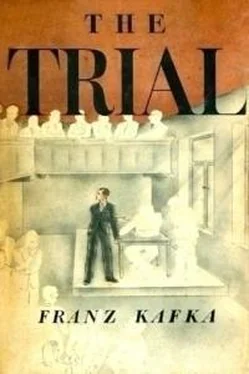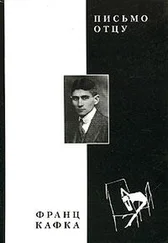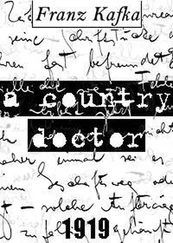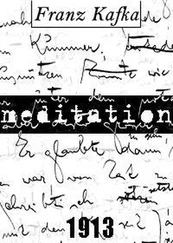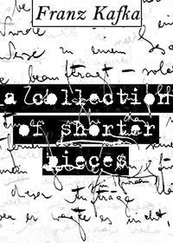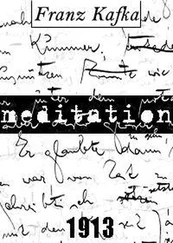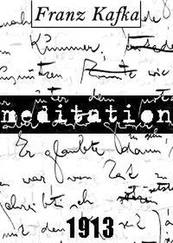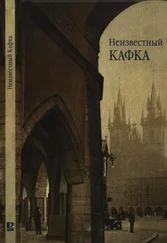Франц Кафка - The Trial
Здесь есть возможность читать онлайн «Франц Кафка - The Trial» — ознакомительный отрывок электронной книги совершенно бесплатно, а после прочтения отрывка купить полную версию. В некоторых случаях можно слушать аудио, скачать через торрент в формате fb2 и присутствует краткое содержание. Год выпуска: 2014, Издательство: epubBooks Classics, Жанр: Классическая проза, на английском языке. Описание произведения, (предисловие) а так же отзывы посетителей доступны на портале библиотеки ЛибКат.
- Название:The Trial
- Автор:
- Издательство:epubBooks Classics
- Жанр:
- Год:2014
- ISBN:нет данных
- Рейтинг книги:3 / 5. Голосов: 1
-
Избранное:Добавить в избранное
- Отзывы:
-
Ваша оценка:
- 60
- 1
- 2
- 3
- 4
- 5
The Trial: краткое содержание, описание и аннотация
Предлагаем к чтению аннотацию, описание, краткое содержание или предисловие (зависит от того, что написал сам автор книги «The Trial»). Если вы не нашли необходимую информацию о книге — напишите в комментариях, мы постараемся отыскать её.
The Trial — читать онлайн ознакомительный отрывок
Ниже представлен текст книги, разбитый по страницам. Система сохранения места последней прочитанной страницы, позволяет с удобством читать онлайн бесплатно книгу «The Trial», без необходимости каждый раз заново искать на чём Вы остановились. Поставьте закладку, и сможете в любой момент перейти на страницу, на которой закончили чтение.
Интервал:
Закладка:
One of the girls behind the door started up again, and asked, "Titorelli, is he going to go soon?" "Quiet!" shouted the painter at the door, "Can't you see I'm talking with the gentleman?" But this was not enough to satisfy the girl and she asked, "You going to paint his picture?" And when the painter didn't answer she added, "Please don't paint him, he's an 'orrible bloke." There followed an incomprehensible, interwoven babble of shouts and replies and calls of agreement. The painter leapt over to the door, opened it very slightly – the girls' clasped hands could be seen stretching through the crack as if they wanted something – and said, "If you're not quiet I'll throw you all down the stairs. Sit down here on the steps and be quiet." They probably did not obey him immediately, so that he had to command, "Down on the steps!" Only then it became quiet.
"I'm sorry about that," said the painter as he returned to K. K. had hardly turned towards the door, he had left it completely up to the painter whether and how he would place him under his protection if he wanted to. Even now, he made hardly any movement as the painter bent over him and, whispering into his ear in order not to be heard outside, said, "These girls belong to the court as well." "How's that?" asked K., as he leant his head to one side and looked at the painter. But the painter sat back down on his chair and, half in jest, half in explanation, "Well, everything belongs to the court." "That is something I had never noticed until now," said K. curtly, this general comment of the painter's made his comment about the girls far less disturbing. Nonetheless, K. looked for a while at the door, behind which the girls were now sitting quietly on the steps. Except, that one of them had pushed a drinking straw through a crack between the planks and was moving it slowly up and down. "You still don't seem to have much general idea of what the court's about", said the painter, who had stretched his legs wide apart and was tapping loudly on the floor with the tip of his foot. "But as you're innocent you won't need it anyway. I'll get you out of this by myself." "How do you intend to do that?" asked K. "You did say yourself not long ago that it's quite impossible to go to the court with reasons and proofs." "Only impossible for reasons and proofs you take to the court yourself" said the painter, raising his forefinger as if K. had failed to notice a fine distinction. "It goes differently if you try to do something behind the public court, that's to say in the consultation rooms, in the corridors or here, for instance, in my studio." K. now began to find it far easier to believe what the painter was saying, or rather it was largely in agreement with what he had also been told by others. In fact it was even quite promising. If it really was so easy to influence the judges through personal contacts as the lawyer had said then the painter's contacts with these vain judges was especially important, and at the very least should not be undervalued. And the painter would fit in very well in the circle of assistants that K. was slowly gathering around himself. He had been noted at the bank for his talent in organising, here, where he was placed entirely on his own resources, would be a good opportunity to test that talent to its limits. The painter observed the effect his explanation had had on K. and then, with a certain unease, said, "Does it not occur to you that the way I'm speaking is almost like a lawyer? It's the incessant contact with the gentlemen of the court has that influence on me. I gain a lot by it, of course, but I lose a lot, artistically speaking." "How did you first come into contact with the judges, then?" asked K., he wanted first to gain the painter's trust before he took him into his service. "That was very easy," said the painter, "I inherited these contacts. My father was court painter before me. It's a position that's always inherited. They can't use new people for it, the rules governing how the various grades of officials are painted are so many and varied, and, above all, so secret that no– one outside of certain families even knows them. In the drawer there, for instance, I've got my father's notes, which I don't show to anyone. But you're only able to paint judges if you know what they say. Although, even if I lost them no–one could ever dispute my position because of all the rules I just carry round in my head. All the judges want to be painted like the old, great judges were, and I'm the only one who can do that." "You are to be envied," said K., thinking of his position at the bank. "Your position is quite unassailable, then?" "Yes, quite unassailable," said the painter, and he raised his shoulders in pride. "That's how I can even afford to help some poor man facing trial now and then." "And how do you do that?" asked K., as if the painter had not just described him as a poor man. The painter did not let himself be distracted, but said, "In your case, for instance, as you're totally innocent, this is what I'll do." The repeated mention of K.'s innocence was becoming irksome to him. It sometimes seemed to him as if the painter was using these comments to make a favourable outcome to the trial a precondition for his help, which of course would make the help itself unnecessary. But despite these doubts K. forced himself not to interrupt the painter. He did not want to do without the painter's help, that was what he had decided, and this help did not seem in any way less questionable than that of the lawyer. K. valued the painter's help far more highly because it was offered in a way that was more harmless and open.
The painter had pulled his seat closer to the bed and continued in a subdued voice: "I forgot to ask you; what sort of acquittal is it you want? There are three possibilities; absolute acquittal, apparent acquittal and deferment. Absolute acquittal is the best, of course, only there's nothing I could do to get that sort of outcome. I don't think there's anyone at all who could do anything to get an absolute acquittal. Probably the only thing that could do that is if the accused is innocent. As you are innocent it could actually be possible and you could depend on your innocence alone. In that case you won't need me or any other kind of help."
At first, K. was astonished at this orderly explanation, but then, just as quietly as the painter, he said, "I think you're contradicting yourself." "How's that?" asked the painter patiently, leaning back with a smile. This smile made K. feel as if he were examining not the words of the painter but seeking out inconsistencies in the procedures of the court itself. Nonetheless, he continued unabashed and said, "You remarked earlier that the court cannot be approached with reasoned proofs, you later restricted this to the open court, and now you go so far as to say that an innocent man needs no assistance in court. That entails a contradiction. Moreover, you said earlier that the judges can be influenced personally but now you insist that an absolute acquittal, as you call it, can never be attained through personal influence. That entails a second contradiction." "It's quite easy to clear up these contradictions," said the painter. "We're talking about two different things here, there's what it says in the law and there's what I know from my own experience, you shouldn't get the two confused. I've never seen it in writing, but the law does, of course, say on the one hand that the innocent will be set free, but on the other hand it doesn't say that the judges can be influenced. But in my experience it's the other way round. I don't know of any absolute acquittals but I do know of many times when a judge has been influenced. It's possible, of course, that there was no innocence in any of the cases I know about. But is that likely? Not a single innocent defendant in so many cases? When I was a boy I used to listen closely to my father when he told us about court cases at home, and the judges that came to his studio talked about the court, in our circles nobody talks about anything else; I hardly ever got the chance to go to court myself but always made use of it when I could, I've listened to countless trials at important stages in their development, I've followed them closely as far as they could be followed, and I have to say that I've never seen a single acquittal." "So. Not a single acquittal," said K., as if talking to himself and his hopes. "That confirms the impression I already have of the court. So there's no point in it from this side either. They could replace the whole court with a single hangman." "You shouldn't generalise," said the painter, dissatisfied, "I've only been talking about my own experience." "Well that's enough," said K., "or have you heard of any acquittals that happened earlier?" "They say there have been some acquittals earlier," the painter answered, "but it's very hard to be sure about it. The courts don't make their final conclusions public, not even the judges are allowed to know about them, so that all we know about these earlier cases are just legends. But most of them did involve absolute acquittals, you can believe that, but they can't be proved. On the other hand, you shouldn't forget all about them either, I'm sure there is some truth to them, and they are very beautiful, I've painted a few pictures myself depicting these legends." "My assessment will not be altered by mere legends," said K. "I don't suppose it's possible to cite these legends in court, is it?" The painter laughed. "No, you can't cite them in court," he said. "Then there's no point in talking about them," said K., he wanted, for the time being, to accept anything the painter told him, even if he thought it unlikely or contradicted what he had been told by others. He did not now have the time to examine the truth of everything the painter said or even to disprove it, he would have achieved as much as he could if the painter would help him in any way even if his help would not be decisive. As a result, he said, "So let's pay no more attention to absolute acquittal, but you mentioned two other possibilities." "Apparent acquittal and deferment. They're the only possibilities," said the painter. "But before we talk about them, would you not like to take your coat off? You must be hot." "Yes," said K., who until then had paid attention to nothing but the painter's explanations, but now that he had had the heat pointed out to him his brow began to sweat heavily. "It's almost unbearable." The painter nodded as if he understood K.'s discomfort very well. "Could we not open the window?" asked K. "No," said the painter. "It's only a fixed pane of glass, it can't be opened." K. now realised that all this time he had been hoping the painter would suddenly go over to the window and pull it open. He had prepared himself even for the fog that he would breathe in through his open mouth. The thought that here he was entirely cut off from the air made him feel dizzy. He tapped lightly on the bedspread beside him and, with a weak voice, said, "That is very inconvenient and unhealthy." "Oh no," said the painter in defence of his window, "as it can't be opened this room retains the heat better than if the window were double glazed, even though it's only a single pane. There's not much need to air the room as there's so much ventilation through the gaps in the wood, but when I do want to I can open one of my doors, or even both of them." K. was slightly consoled by this explanation and looked around to see where the second door was. The painter saw him do so and said, "It's behind you, I had to hide it behind the bed." Only then was K. able to see the little door in the wall. "It's really much too small for a studio here," said the painter, as if he wanted to anticipate an objection K. would make. "I had to arrange things as well as I could. That's obviously a very bad place for the bed, in front of the door. For instance when the judge I'm painting at present comes he always comes through the door by the bed, and I've even given him a key to this door so that he can wait for me here in the studio when I'm not home. Although nowadays he usually comes early in the morning when I'm still asleep. And of course, it always wakes me up when I hear the door opened beside the bed, however fast asleep I am. If you could hear the way I curse him as he climbs over my bed in the morning you'd lose all respect for judges. I suppose I could take the key away from him but that'd only make things worse. It only takes a tiny effort to break any of the doors here off their hinges." All the time the painter was speaking, K. was considering whether he should take off his coat, but he finally realised that, if he didn't do so, he would be quite unable to stay here any longer, so he took off his frock coat and lay it on his knee so that he could put it back on again as soon as the conversation was over. He had hardly done this when one of the girls called out, "Now he's taken his coat off!" and they could all be heard pressing around the gaps in the planks to see the spectacle for themselves. "The girls think I'm going to paint your portrait," said the painter, "and that's why you're taking your coat off." "I see," said K., only slightly amused by this, as he felt little better than he had before even though he now sat in his shirtsleeves. With some irritation he asked, "What did you say the two other possibilities were?" He had already forgotten the terms used. "Apparent acquittal and deferment," said the painter. "It's up to you which one you choose. You can get either of them if I help you, but it'll take some effort of course, the difference between them is that apparent acquittal needs concentrated effort for a while and that deferment takes much less effort but it has to be sustained. Now then, apparent acquittal. If that's what you want I'll write down an assertion of your innocence on a piece of paper. The text for an assertion of this sort was passed down to me from my father and it's quite unassailable. I take this assertion round to the judges I know. So I'll start off with the one I'm currently painting, and put the assertion to him when he comes for his sitting this evening. I'll lay the assertion in front of him, explain that you're innocent and give him my personal guarantee of it. And that's not just a superficial guarantee, it's a real one and it's binding." The painter's eyes seemed to show some reproach of K. for wanting to impose that sort of responsibility on him. "That would be very kind of you", said K. "And would the judge then believe you and nonetheless not pass an absolute acquittal?" "It's like I just said," answered the painter. "And anyway, it's not entirely sure that all the judges would believe me, many of them, for instance, might want me to bring you to see them personally. So then you'd have to come along too. But at least then, if that happens, the matter is half way won, especially as I'd teach you in advance exactly how you'd need to act with the judge concerned, of course. What also happens, though, is that there are some judges who'll turn me down in advance, and that's worse. I'll certainly make several attempts, but still, we'll have to forget about them, but at least we can afford to do that as no one judge can pass the decisive verdict. Then when I've got enough judges' signatures on this document I take it to the judge who's concerned with your case. I might even have his signature already, in which case things develop a bit quicker than they would do otherwise. But there aren't usually many hold ups from then on, and that's the time that the defendant can feel most confident. It's odd, but true, that people feel more confidence in this time than they do after they've been acquitted. There's no particular exertion needed now. When he has the document asserting the defendant's innocence, guaranteed by a number of other judges, the judge can acquit you without any worries, and although there are still several formalities to be gone through there's no doubt that that's what he'll do as a favour to me and several other acquaintances. You, however, walk out the court and you're free." "So, then I'll be free," said K., hesitantly. "That's right," said the painter, "but only apparently free or, to put it a better way, temporarily free, as the most junior judges, the ones I know, they don't have the right to give the final acquittal. Only the highest judge can do that, in the court that's quite out of reach for you, for me and for all of us. We don't know how things look there and, incidentally, we don't want to know. The right to acquit people is a major privilege and our judges don't have it, but they do have the right to free people from the indictment. That's to say, if they're freed in this way then for the time being the charge is withdrawn but it's still hanging over their heads and it only takes an order from higher up to bring it back into force. And as I'm in such good contact with the court I can also tell you how the difference between absolute and apparent acquittal is described, just in a superficial way, in the directives to the court offices. If there's an absolute acquittal all proceedings should stop, everything disappears from the process, not just the indictment but the trial and even the acquittal disappears, everything just disappears. With an apparent acquittal it's different. When that happens, nothing has changed except that the case for your innocence, for your acquittal and the grounds for the acquittal have been made stronger. Apart from that, proceedings go on as before, the court offices continue their business and the case gets passed to higher courts, gets passed back down to the lower courts and so on, backwards and forwards, sometimes faster, sometimes slower, to and fro. It's impossible to know exactly what's happening while this is going on. Seen from outside it can sometimes seem that everything has been long since forgotten, the documents have been lost and the acquittal is complete. No–one familiar with the court would believe it. No documents ever get lost, the court forgets nothing. One day – no–one expects it – some judge or other picks up the documents and looks more closely at them, he notices that this particular case is still active, and orders the defendant's immediate arrest. I've been talking here as if there's a long delay between apparent acquittal and re–arrest, that is quite possible and I do know of cases like that, but it's just as likely that the defendant goes home after he's been acquitted and finds somebody there waiting to re–arrest him. Then, of course, his life as a free man is at an end." "And does the trial start over again?" asked K., finding it hard to believe. "The trial will always start over again," said the painter, "but there is, once again as before, the possibility of getting an apparent acquittal. Once again, the accused has to muster all his strength and mustn't give up." The painter said that last phrase possibly as a result of the impression that K., whose shoulders had dropped somewhat, gave on him. "But to get a second acquittal," asked K., as if in anticipation of further revelations by the painter, "is that not harder to get than the first time?" "As far as that's concerned," answered the painter, "there's nothing you can say for certain. You mean, do you, that the second arrest would have an adverse influence on the judge and the verdict he passes on the defendant? That's not how it happens. When the acquittal is passed the judges are already aware that re–arrest is likely. So when it happens it has hardly any effect. But there are countless other reasons why the judges' mood and their legal acumen in the case can be altered, and efforts to obtain the second acquittal must therefore be suited to the new conditions, and generally just as vigorous as the first." "But this second acquittal will once again not be final," said K., shaking his head. "Of course not," said the painter, "the second acquittal is followed by the third arrest, the third acquittal by the fourth arrest and so on. That's what is meant by the term apparent acquittal." K. was silent. "You clearly don't think an apparent acquittal offers much advantage," said the painter, "perhaps deferment would suit you better. Would you like me to explain what deferment is about?" K. nodded. The painter had leant back and spread himself out in his chair, his nightshirt was wide open, he had pushed his hand inside and was stroking his breast and his sides. "Deferment," said the painter, looking vaguely in front of himself for a while as if trying to find a perfectly appropriate explanation, "deferment consists of keeping proceedings permanently in their earliest stages. To do that, the accused and those helping him need to keep in continuous personal contact with the court, especially those helping him. I repeat, this doesn't require so much effort as getting an apparent acquittal, but it probably requires a lot more attention. You must never let the trial out of your sight, you have to go and see the appropriate judge at regular intervals as well as when something in particular comes up and, whatever you do, you have to try and remain friendly with him; if you don't know the judge personally you have to influence him through the judges you do know, and you have to do it without giving up on the direct discussions. As long as you don't fail to do any of these things you can be reasonably sure the trial won't get past its first stages. The trial doesn't stop, but the defendant is almost as certain of avoiding conviction as if he'd been acquitted. Compared with an apparent acquittal, deferment has the advantage that the defendant's future is less uncertain, he's safe from the shock of being suddenly re–arrested and doesn't need to fear the exertions and stress involved in getting an apparent acquittal just when everything else in his life would make it most difficult. Deferment does have certain disadvantages of its own though, too, and they shouldn't be under–estimated. I don't mean by this that the defendant is never free, he's never free in the proper sense of the word with an apparent acquittal either. There's another disadvantage. Proceedings can't be prevented from moving forward unless there are some at least ostensible reasons given. So something needs to seem to be happening when looked at from the outside. This means that from time to time various injunctions have to be obeyed, the accused has to be questioned, investigations have to take place and so on. The trial's been artificially constrained inside a tiny circle, and it has to be continuously spun round within it. And that, of course, brings with it certain unpleasantnesses for the accused, although you shouldn't imagine they're all that bad. All of this is just for show, the interrogations, for instance, they're only very short, if you ever don't have the time or don't feel like going to them you can offer an excuse, with some judges you can even arrange the injunctions together a long time in advance, in essence all it means is that, as the accused, you have to report to the judge from time to time." Even while the painter was speaking those last words K. had laid his coat over his arm and had stood up. Immediately, from outside the door, there was a cry of 'He's standing up now!'. "Are you leaving already?" asked the painter, who had also stood up. "It must be the air that's driving you out. I'm very sorry about that. There's still a lot I need to tell you. I had to put everything very briefly but I hope at least it was all clear." "Oh yes," said K., whose head was aching from the effort of listening. Despite this affirmation the painter summed it all up once more, as if he wanted to give K. something to console him on his way home. "Both have in common that they prevent the defendant being convicted," he said. "But they also prevent his being properly acquitted," said K. quietly, as if ashamed to acknowledge it. "You've got it, in essence," said the painter quickly. K. placed his hand on his winter overcoat but could not bring himself to put it on. Most of all he would have liked to pack everything together and run out to the fresh air. Not even the girls could induce him to put his coat on, even though they were already loudly telling each other that he was doing so. The painter still had to interpret K.'s mood in some way, so he said, "I expect you've deliberately avoided deciding between my suggestions yet. That's good. I would even have advised against making a decision straight away. There's no more than a hair's breadth of difference between the advantages and disadvantages. Everything has to be carefully weighed up. But the most important thing is you shouldn't lose too much time." "I'll come back here again soon," said K., who had suddenly decided to put his frock coat on, threw his overcoat over his shoulder and hurried over to the door behind which the girls now began to scream. K. thought he could even see the screaming girls through the door. "Well, you'll have to keep your word," said the painter, who had not followed him, "otherwise I'll come to the bank to ask about it myself." "Will you open this door for me," said K. pulling at the handle which, as he noticed from the resistance, was being held tightly by the girls on the other side. "Do you want to be bothered by the girls?" asked the painter. "It's better if you use the other way out," he said, pointing to the door behind the bed. K. agreed to this and jumped back to the bed. But instead of opening that door the painter crawled under the bed and from underneath it asked K., "Just a moment more, would you not like to see a picture I could sell to you?" K. did not want to be impolite, the painter really had taken his side and promised to help him more in the future, and because of K.'s forgetfulness there had been no mention of any payment for the painter's help, so K. could not turn him down now and allowed him to show him the picture, even though he was quivering with impatience to get out of the studio. From under the bed, the painter withdrew a pile of unframed paintings. They were so covered in dust that when the painter tried to blow it off the one on top the dust swirled around in front of K.'s eyes, robbing him of breath for some time. "Moorland landscape," said the painter passing the picture to K. It showed two sickly trees, well separated from each other in dark grass. In the background there was a multi–coloured sunset. "That's nice," said K. "I'll buy it." K. expressed himself in this curt way without any thought, so he was glad when the painter did not take this amiss and picked up a second painting from the floor. "This is a counterpart to the first picture," said the painter. Perhaps it had been intended as a counterpart, but there was not the slightest difference to be seen between it and the first picture, there were the trees, there the grass and there the sunset. But this was of little importance to K. "They are beautiful landscapes," he said, "I'll buy them both and hang them in my office." "You seem to like this subject," said the painter, picking up a third painting, "good job I've still got another, similar picture here." The picture though, was not similar, rather it was exactly the same moorland landscape. The painter was fully exploiting this opportunity to sell off his old pictures. "I'll take this one too," said K. "How much do the three paintings cost?" "We can talk about that next time," said the painter. "You're in a hurry now, and we'll still be in contact. And besides, I'm glad you like the paintings, I'll give you all the paintings I've got down here. They're all moorland landscapes, I've painted a lot of moorland landscapes. A lot of people don't like that sort of picture because they're too gloomy, but there are others, and you're one of them, who love gloomy themes." But K. was not in the mood to hear about the professional experiences of this painter cum beggar. "Wrap them all up!" he called out, interrupting the painter as he was speaking, "my servant will come to fetch them in the morning." "There's no need for that," said the painter. "I expect I can find a porter for you who can go with you now." And, at last, he leant over the bed and unlocked the door. "Just step on the bed, don't worry about that," said the painter, "that's what everyone does who comes in here." Even without this invitation, K. had shown no compunction in already placing his foot in the middle of the bed covers, then he looked out through the open door and drew his foot back again. "What is that?" he asked the painter. "What are you so surprised at?" he asked, surprised in his turn. "Those are court offices. Didn't you know there are court offices here? There are court offices in almost every attic, why should this building be any different? Even my studio is actually one of the court offices but the court put it at my disposal." It was not so much finding court offices even here that shocked K., he was mainly shocked at himself, at his own naïvety in court matters. It seemed to him that one of the most basic rules governing how a defendant should behave was always to be prepared, never allow surprises, never to look, unsuspecting, to the right when the judge stood beside him to his left – and this was the very basic rule that he was continually violating. A long corridor extended in from of him, air blew in from it which, compared with the air in the studio, was refreshing. There were benches set along each side of the corridor just as in the waiting area for the office he went to himself. There seemed to be precise rules governing how offices should be equipped. There did not seem to be many people visiting the offices that day. There was a man there, half sitting, half laying, his face was buried in his arm on the bench and he seemed to be sleeping; another man was standing in the half–dark at the end of the corridor. K. now climbed over the bed, the painter followed him with the pictures. They soon came across a servant of the court – K. was now able to recognise all the servants of the court from the gold buttons they wore on their civilian clothes below the normal buttons – and the painter instructed him to go with K. carrying the pictures. K. staggered more than he walked, his handkerchief pressed over his mouth. They had nearly reached the exit when the girls stormed in on them, so K. had not been able to avoid them. They had clearly seen that the second door of the studio had been opened and had gone around to impose themselves on him from this side. "I can't come with you any further!" called out the painter with a laugh as the girls pressed in. "Goodbye, and don't hesitate too long!" K. did not even look round at him. Once on the street he took the first cab he came across. He now had to get rid of the servant, whose gold button continually caught his eye even if it caught no–one else's. As a servant, the servant of the court was going to sit on the coach–box. But K. chased him down from there. It was already well into the afternoon when K. arrived in front of the bank. He would have liked to leave the pictures in the cab but feared there might be some occasion when he would have to let the painter see he still had them. So he had the pictures taken to his office and locked them in the lowest drawer of his desk so that he could at least keep them safe from the deputy director's view for the next few days.
Читать дальшеИнтервал:
Закладка:
Похожие книги на «The Trial»
Представляем Вашему вниманию похожие книги на «The Trial» списком для выбора. Мы отобрали схожую по названию и смыслу литературу в надежде предоставить читателям больше вариантов отыскать новые, интересные, ещё непрочитанные произведения.
Обсуждение, отзывы о книге «The Trial» и просто собственные мнения читателей. Оставьте ваши комментарии, напишите, что Вы думаете о произведении, его смысле или главных героях. Укажите что конкретно понравилось, а что нет, и почему Вы так считаете.
